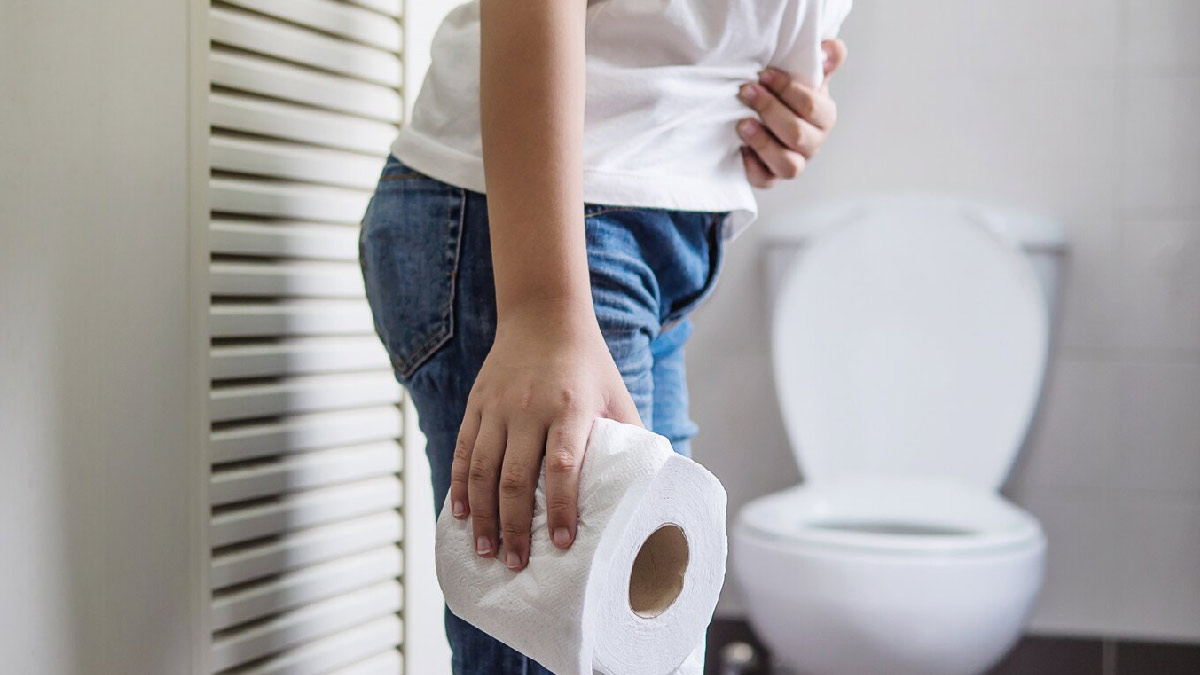
A bowel movement can tell you a lot about your digestive health. Any changes in the stool colour, type, and consistency may indicate problems within the gastrointestinal tract. But apart from these factors, the number of times you pass stool can also reveal a lot about your health. In fact, changes in the frequency might even signal issues like constipation or diarrhoea.
Table of Content:-
Infrequent bowel movements, typically three or fewer times a week, can be a sign of constipation, as per StatsPearl Publishing, whereas if you have 20 or more bowel movements in a day, occurring between 20 and 30 minutes, it can indicate diarrhoea.
So what is the ideal number of bowel movements you should have in a day or a week? How often should you visit the toilet? Speaking with the OnlyMyHealth team, Dr Rakesh Patel, Consultant Gastroenterology, Fortis Hospital, Kalyan, shed light on the same.
Also Read: White Stool: What Does It Indicate?
How Often Should You Poop In A Day?

Stool frequency is a highly individualised aspect of human health, varying from person to person, according to Dr Patel.
He said, “In western countries, it is generally considered normal if individuals have up to three bowel movements per week. In contrast, the norm in India is considered up to three bowel movements per day.”
A study published in the Scandinavian Journal of Gastroenterology looked at bowel habits in 124 healthy people and found that 98% of the participants had bowel movements ranging between three times a day and three times a week.
It is important to note that the frequency may vary from person to person and that most people have their own set routines. Keeping that in mind, it is crucial to address any changes or disturbances in stool frequency or form, advised Dr Patel.
‘Vegetarians Tend To Have A Higher Stool Frequency’
Sharing an interesting observation, Dr Patel suggested that vegetarians tend to have a higher frequency of bowel movements compared to non-vegetarians.
A study published by Cambridge University Press explored factors affecting how often people pass stool. Researchers found that vegetarians or vegans have a higher bowel frequency than meat-eaters. This was attributed to higher fibre intake, fluid intake, BMI, and vigorous exercise, particularly in women. It was further noted that women have a lower stool frequency than men.
When Should You Consult A Doctor?

When it comes to stool frequency, here’s when you should visit a doctor:
- Noticeable changes in stool consistency or form
- Changes in stool frequency (with or without pain)
- Presence of blood in the stool
- Weight loss
Some of the severe digestive issues associated with all of these symptoms include Inflammatory Bowel Disease (IBD) or cancer.
Also Read: Bowel Movements: Tips For Healthy Bowel Movements
What To Do?

Here’s what you can do to restore healthy bowel habits:
- Drink plenty of water and stay adequately hydrated
- Increase fibre-rich foods like fruits, vegetables, and whole grains
- Consume probiotic-rich foods or supplements to support a healthy gut microbiome
- Engage in regular physical activity
- Minimise the use of over-the-counter laxatives
- Establish a consistent daily routine for meals and bathroom visits
Conclusion
Your bowel habits, including the number of bathroom visits, can reveal a lot about your health, particularly your digestive well-being. While constipation and diarrhoea are some of the most common and manageable conditions associated with irregular bowel movements and stool frequency, chronic medical conditions like cancer and IBD are also concerning causes. Depending on your own routine and how often you make toilet visits, address any changes you notice in your bowel habits. This will help diagnose or rule out severe health issues and provide you with appropriate and effective treatments.
Also watch this video
How we keep this article up to date:
We work with experts and keep a close eye on the latest in health and wellness. Whenever there is a new research or helpful information, we update our articles with accurate and useful advice.
Current Version